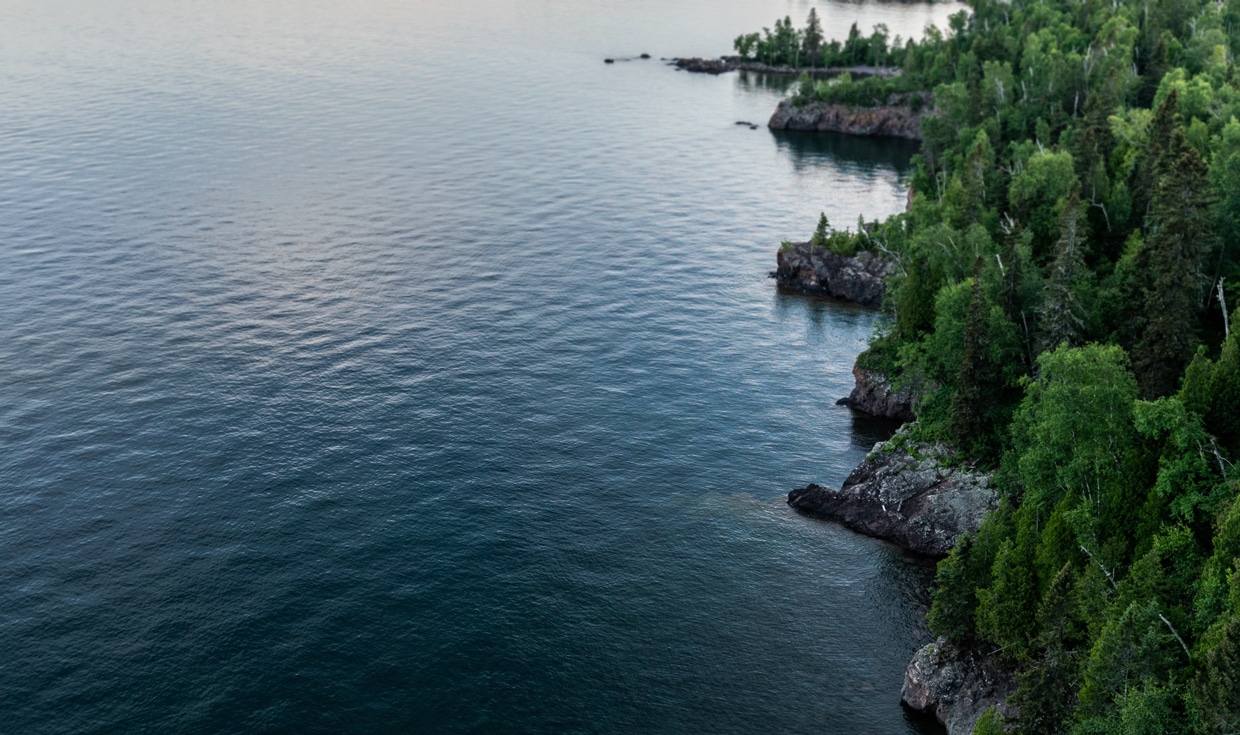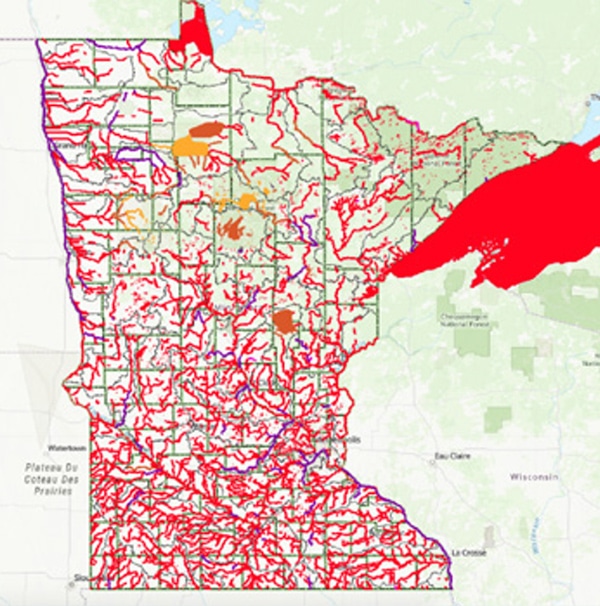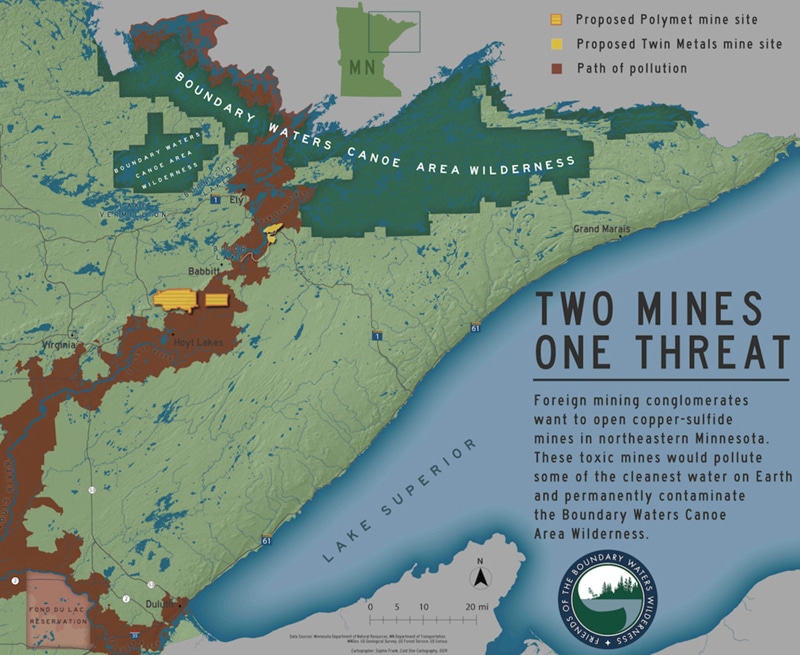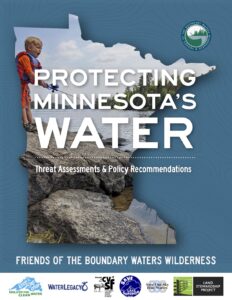
A report authored by several Minnesota environmental groups includes assessments of threats to the resource, and recommendations for policies to protect it. The Minnesota Water Report looks at six major challenges to clean water in the state, including proposed copper-nickel mines, agricultural runoff, discharges from wastewater treatment facilities, water availability, wildlife habitat, and inadequate environmental rules and laws.
“Without bold action and major policy changes from Minnesota’s elected leaders, the land of sky-blue waters will soon become the land of irreparably-polluted waters,” the report’s executive summary says. The executive summary goes on to point out that Minnesota’s more than 10,000 lakes are highly valued, Lake Superior’s watershed contains 10 percent of all the available freshwater in the world, and 56 percent of lakes in the state that have been assessed were found to exceed pollution limits.

Threats to Minnesota’s water
Concerning proposed copper-nickel mines, like those advanced by PolyMet and Twin Metals, the report identifies numerous threats. Chemical leaks, acid mine drainage, hundreds of years of needed water treatment, and pollution that could harm people, wild rice, fish, and more living beings.
“With a track record of environmental devastation across the world, allowing this industry to operate next to Minnesota’s cleanest water would be devastating to the state’s lakes, rivers and streams and would directly undermine the state’s One Watershed, One Plan, which sets standards for clean water, water conservation and pollution mitigation,” the report says.
Policy recommendations regarding mining

The authors call for the legislature to pass a “Prove it First” law and a “Taxpayer Disaster Protection Bill.” The former would require companies to “demonstrate their mine will be pollution-free before being allowed to move forward,” while the latter would require companies to “fully fund, in cash, financial assurance in advance of project construction.” Third, the report urges policy-makers to take steps to increase recycling and reclamation of metals like copper and nickel.
The report was released by the Friends of the Boundary Waters Wilderness with contributions from Land Stewardship Project, WaterLegacy, Duluth for Clean Water, Friends of the Cloquet Valley State Forest, Save Lake Superior Association, and Save Our Sky Blue Waters.


